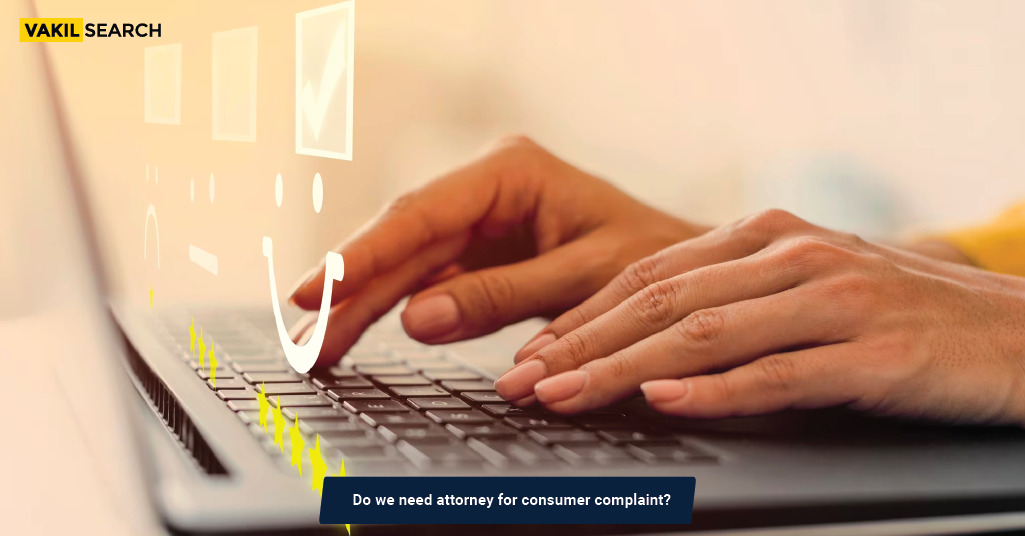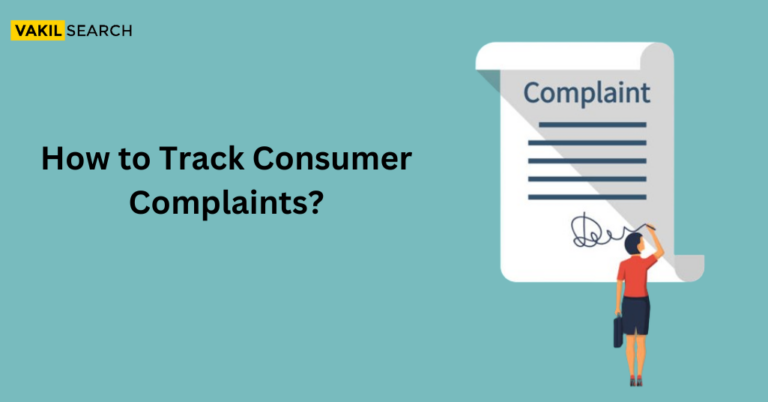Don't let a consumer complaint overwhelm you. Our comprehensive overview provides valuable insights into the process, including the role of attorneys, alternative options, and how to choose the right one.
Introduction:
In an era of vast consumer markets and aggressive advertising, sometimes, consumers might find themselves on the receiving end of unfair trade practices, defective products, or deficient services. In such cases, the Consumer Protection Act, 2019 provides a robust mechanism for consumers in India to seek redressal and defend their rights.
This article aims to guide you through the process of filing a consumer complaint in India, discussing who can file a complaint when to consider hiring a lawyer, the pros and cons of hiring a lawyer, and more. We’ll also address some of the most frequently asked questions related to consumer complaints.
Who Can File a Consumer Complaint:
As per the Consumer Protection Act, the following entities can file a consumer complaint in India:
Any consumer: A consumer is defined as any person who buys goods or avails a service for consideration, either for his/her personal use or for earning a livelihood through self-employment.
Any registered voluntary consumer association: Consumer associations registered under the Companies Act, 2013 or any other law for the time being in force can lodge a complaint.
The Central or State Government: Both Central and State Governments can initiate a complaint.
One or more consumers, where there are numerous consumers having the same interest.
In the case of the death of a consumer, his legal heir or representative can lodge a complaint.
Filing of a Consumer Complaint
The process of filing a consumer complaint is straightforward and involves the following steps:
Identify the Jurisdiction:
First, determine the appropriate jurisdiction where the complaint should be filed. This can be the District Consumer Forum, the State Consumer Commission, or the National Consumer Disputes Redressal Commission, based on the value of the claim and the nature of the case.
Drafting the Complaint:
The next step involves drafting the complaint. The complaint should contain details such as the name and address of the complainant and the opposite party, the facts surrounding the complaint, documents supporting the claim, and the relief sought.
Filing the Complaint:
Once the complaint has been drafted, it must be signed by the complainant and submitted to the appropriate consumer forum or commission along with the prescribed fee. If the complainant is illiterate, a thumb impression along with the signature of an independent witness would be required.
Evidence and Hearing:
After the complaint is admitted, the consumer court will ask for evidence and hold hearings to examine the matter.
Decision:
Finally, after examining the evidence and hearing both parties, the consumer court will pass its judgement.
When to Consider Hiring a Lawyer for Consumer Complaint?
Although the consumer protection law allows consumers to represent themselves in consumer courts, there can be situations where hiring a lawyer becomes beneficial.
Consider hiring a lawyer if:
The case is complex: If the case involves intricate legal issues or large amounts of money, it’s advisable to hire a lawyer who can navigate the legal complexities effectively.
You lack legal expertise: If you’re not familiar with the legal procedures, you may end up making mistakes that could jeopardize your case.
You’re time-constrained: If you have a busy schedule and cannot commit enough time to the case, a lawyer can help you manage the process.
Pros and Cons of Hiring a Lawyer for Consumer Complaints
Hiring a lawyer for filing a consumer complaint comes with its advantages and disadvantages.
Pros:
- Legal Expertise: Lawyers bring legal expertise and an understanding of the procedural intricacies of the court. They can build a strong case by identifying the correct legal provisions applicable to your case and presenting compelling arguments.
- Time-saving: Handling a legal case requires significant time and effort. By hiring a lawyer, you can save time, and concentrate on your personal and professional commitments.
- Negotiation Skills: Lawyers are trained negotiators. They can effectively negotiate with the opposite party or their lawyers, which can result in a favourable settlement.
Cons:
- Cost: Hiring a lawyer can be expensive. Legal fees can add up, particularly if the case drags on for a long time.
- Delay: Lawyers often have multiple cases to handle, which could result in a delay in the proceedings.
Conclusion:
Filing a consumer complaint in India is a crucial right provided to consumers to safeguard them against unfair practices. While the process is simple enough for individuals to handle on their own, hiring a lawyer can be beneficial in complex cases or when consumers lack the time or expertise to manage the case. However, the decision should be made after considering the cost and potential delays that could come with hiring a lawyer.
FAQs on Filing Consumer Complaints in India:
Do we need an advocate for a consumer complaint?
While it's not mandatory to have an advocate for filing a consumer complaint, in complex cases or if the consumer lacks the time or legal knowledge, hiring a lawyer can be advantageous.
How do you fight a consumer case?
To fight a consumer case, first, determine the jurisdiction, draft a complaint detailing the issue, provide all necessary supporting documents, and state the relief sought. Follow through with providing evidence and attending hearings.
What is the time limit for a consumer complaint?
A consumer complaint must be filed within two years from the date on which the cause of action arose.
What is the punishment of consumer court?
If a party fails to comply with the order of a consumer court, they will either be imprisoned for six months or have to pay a fine of maximum 20 lakhs. Sometimes, both too!
What can I expect from filing a consumer complaint?
Filing a consumer complaint typically initiates a formal process aimed at resolving disputes between consumers and businesses. Upon filing a complaint, you can expect a review by the appropriate consumer protection agency or regulatory authority, communication with the business regarding the complaint, investigation into its merits, potential resolution efforts such as negotiations or legal proceedings, and remedies such as refunds or corrective actions by the business to address the consumer's concerns.
What is a consumer complaint?
A consumer complaint is a formal expression of dissatisfaction or grievance filed by an individual or group against a business, service provider, or seller. It typically alleges violations of consumer rights, breach of contract, defective products, poor service quality, unfair business practices, or other grievances related to consumer transactions.
How do I file a consumer complaint?
To file a consumer complaint, gather documentation related to the issue, attempt to resolve it directly with the business, research the appropriate consumer protection agency, submit a formal complaint with detailed information and evidence, and stay engaged in the resolution process by following up with the agency and the business.
What can I expect from filing a consumer complaint?
Filing a consumer complaint initiates a formal process aimed at addressing grievances and seeking resolution for consumer-related issues. Key expectations from filing a consumer complaint include review and investigation of the complaint by the relevant consumer protection agency or regulatory authority, communication with the business or service provider regarding the complaint and potential resolution efforts, evaluation of evidence and merits of the complaint to determine appropriate actions or remedies, pursuit of resolution through negotiation, mediation, arbitration, or legal proceedings, and potential outcomes such as refunds, replacements, compensation, or corrective actions by the business to address the consumer's concerns.










